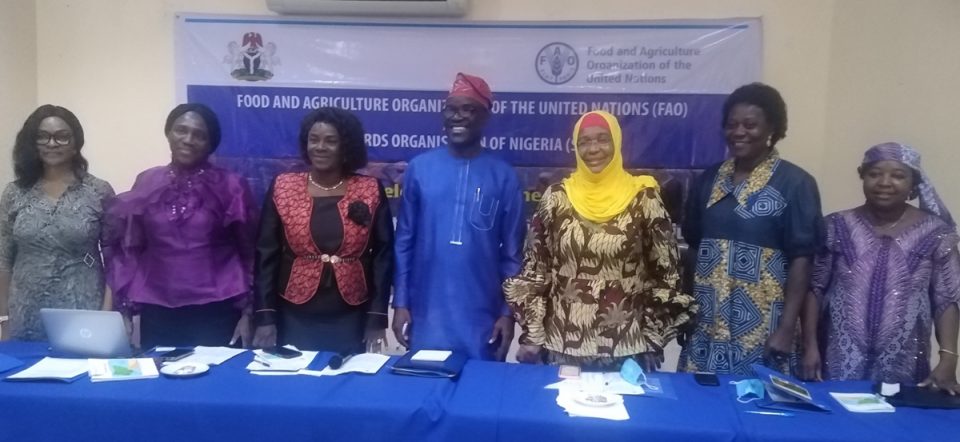Concerned about rising rate of death caused by improper handling of food and poor hygienic situation during the food product processing by value chain, the Food and Agriculture Organization (FAO), World Health Organization (WHO), the Standards Organisation of Nigeria and others have commenced a two-day training of famers, MSMEs and others on the value-chain on Codex.
The Codex Alimentarius Commission (CAC) is world Food Standards program created jointly by Food and Agriculture Organization (FAO) and World Health Organization (WHO) in 1963 to promote and coordinate food standards as well as encourage new standards for locally made products/ imported products and other products to ensure food safety.
According to the Chairman of the training which started on Tuesday in Lagos, Minister of Health, Dr. Osagie Ehanire, who was represented by Atanda John, National Coordinator, Food Safety and Quality Programme, seeks to address the importance of Codex Standards, Code of Practices and Codex activities to our national and international obligations in food standards.
“The primary objectives of this workshop is to create awareness on Codex activities at the Local, State and Regional Levels in order to improve the technical capacities of various critical stakeholders along the food supply chain such as farmers processors, transporters, Micro, Small and Medium Enterprises (MSMEs) etc. as well as regulators and policy makers at various levels.
“As you are all aware, food production, processing and trade has gone beyond what if used to be as a local practice where little or no attention were being given to issue of safety practices, quality and standards. This has led to escalating rate of food borne diseases worldwide and rejection of our food product at the international market.
“WHO records that every year, nearly one in ten people in the world, an estimated 600 million people fall ill, and 420,000 die after eating food contaminated by bacteria, viruses, parasites or chemical substances such as heavy metals.
“Over 200 diseases are caused by eating contaminated food and the magnitude of public health burden due to food borne diseases is comparable to that of malaria or HIV/AIDS while the negative impact of economic and productivity losses cannot be over-emphasized. These are due to poor handling and safety practices along the food supply chain,” the Minister stressed.
Earlier in his opening remarks, Mallam Farouk Salim, DG, SON, who was represented by Yeside Akinlabi director South West regional operations SON, stated that Codex food standards are the international standard documents for protection of consumer health, facilitation of global trade/markets and economic development, adding that it is also the framework for negotiation and arbitration on international trade disputes by the World Trade Organization (WTO).
In his own words; “Nigeria on the other hand, has an established and well-functioning National Codex Committee (NCC) which meets regularly on quarterly basis to discuss Codex issues and matters of food safety and control measures. There is a general lack of knowledge and awareness of Codex matters among the public especially Farmers, Processors, Small & Medium Enterprises (SMEs), Regional, State and Local Government Executives and Local Journalist etc.
“NCC recognizes Food safety as an essential aspect in achieving sustainable food security and can be attained through establishment of a food safety control system that conforms with international food standard setting specifications such as Codex Alimentarius.”
In his goodwill message, the FAO Representative in Nigeria and to ECOWAS, Fred Kafeero who was represented by Sa Adiya Haliru, noted that Nigeria is among many nations of the world that experience huge economic loss annually that affects its Gross Domestic Product (GDP) due to unsafe foods being produced, marketed, and consumed by the populace of over 200 million people.
Haliru said, “Today’s regional workshop is to create national and sub-national level awareness on the use of CODEX Standards and Code of Practices. It draws stakeholders from all aspects of agri-tood systems to share lessons learnt and to address the burden of foodborne diseases arising from unsate foods products in Nigeria.
“The workshop will assist in ensuring that all food standards are upheld for the overall wellbeing of the population.”




